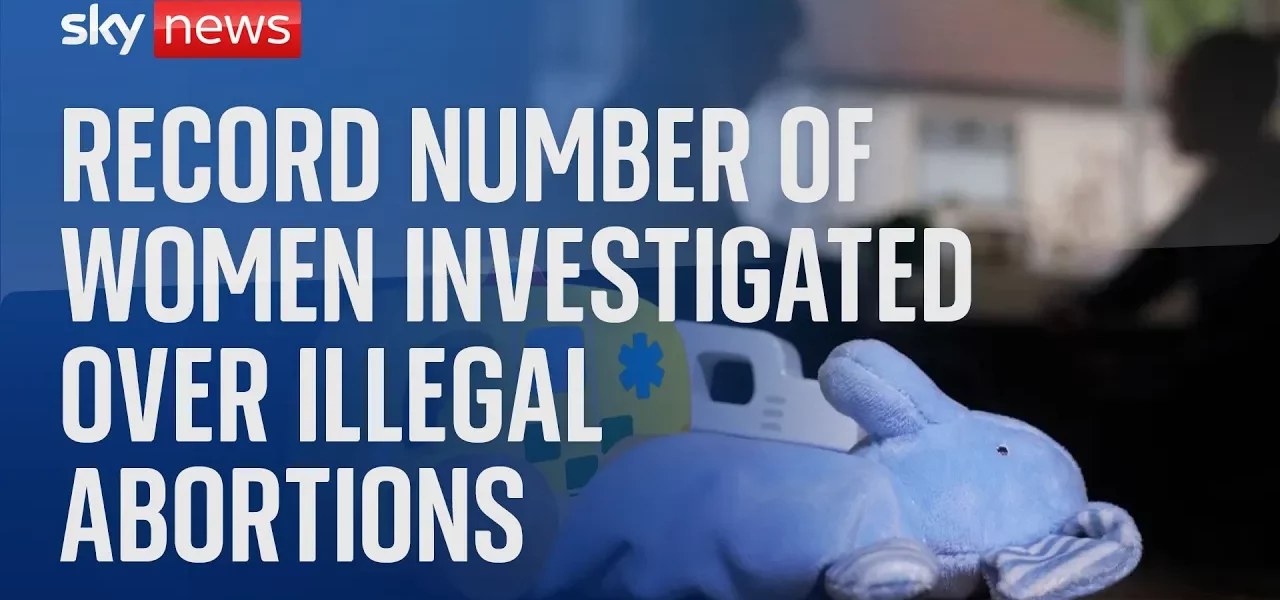The House Was Still a Crime Scene: A Mother’s Journey Through Abortion Laws and Investigations

This article delves into the harrowing experiences of a mother, Sarah, who faced a year-long investigation by police after her pregnancy took a traumatic turn. We will explore the legal landscape surrounding abortion in England and Wales, the emotional toll on mothers, and the implications of current laws on women’s healthcare choices.
Introduction
Sarah, a mother to an 18-month-old baby, found herself at the center of a police investigation for nearly a year due to her past considerations regarding abortion. The emotional burden of feeling like a criminal overshadowed her motherhood journey. This article aims to unpack the complexities of her situation, the legal ramifications surrounding abortion, and the broader implications for women facing similar challenges in England and Wales.
The Investigation Begins
Sarah’s ordeal began when she considered terminating her pregnancy. After visiting an abortion clinic, she discovered she was three days past the legal limit for a medical abortion. This left her feeling desperate and overwhelmed.
The Emotional Toll
Following her visit to the clinic, Sarah experienced a wave of emotions:
- Shock and despair at being past the legal limit
- Panic and fear about her options
- Guilt and anxiety about her pregnancy and potential outcomes
In her distress, she searched online for backstreet abortions and other unregulated options, which only heightened her emotional turmoil. Ultimately, she did not pursue any of these options, but the situation escalated drastically when she unexpectedly went into labor three months prematurely.
The Birth and Its Aftermath
In a traumatic sequence of events, Sarah gave birth in her bathroom to a baby boy who was not breathing. The emotional and physical chaos that ensued was devastating. She immediately called emergency services, but the police arrived before paramedics, exacerbating her feelings of being criminalized.
The Role of Law Enforcement
The police’s presence during such a critical moment was alarming. It highlighted the legal ramifications surrounding suspected cases of abortion-related issues:
- Police involvement can complicate medical emergencies.
- The legal framework around abortion in England and Wales is stringent and can lead to severe consequences for mothers.
- The investigation into Sarah’s situation lasted 51 weeks, creating an ongoing atmosphere of fear and uncertainty.
Legal Framework Surrounding Abortion
Under current law in England and Wales, abortion is a criminal offense unless performed under specific conditions. A woman can legally terminate a pregnancy up to 24 weeks with the consent of two doctors. However, the laws are complex and fraught with challenges for women.
Legal Implications
Deliberately ending a pregnancy can carry a potential life sentence, which raises significant ethical and legal questions:
- What constitutes illegal abortion?
- How does the law respond to cases of suspected illegal terminations?
- What are the repercussions for women who find themselves in these situations?
Changing Landscape Post-COVID
Since the COVID-19 pandemic, there has been a shift in how abortions are administered, with increased accessibility to at-home medical abortions. However, this has also led to heightened scrutiny and investigations by authorities.
The Rise in Investigations and Legal Actions
Recent data indicate a troubling trend in police investigations related to abortion. The number of women under investigation for alleged illegal abortions has reached unprecedented levels:
Statistics and Trends
In the year leading up to March 2023, a record number of women faced police investigations:
- 29 women were recorded as under police investigation, the highest figure in 20 years.
- Out of 17 cases reaching court over a nine-year period, only six resulted in conviction.
- Between 2020 and 2023, nearly half of the cases that went to court resulted in a conviction.
Reactions from Healthcare Providers
Healthcare professionals have expressed concern about the implications of these investigations. They argue that:
- Patients may be deterred from seeking help for fear of legal repercussions.
- New guidelines have been issued to protect patient confidentiality and prevent unnecessary legal involvement.
Conclusion
Sarah’s story is not just a personal tragedy but a reflection of the broader issues surrounding abortion laws in England and Wales. The tension between healthcare and legality poses significant ethical challenges for women and medical professionals alike. As discussions about reform continue, it is crucial to consider the implications of these laws on women’s lives and reproductive rights. If you or someone you know is facing similar challenges, it’s essential to seek support and legal advice to navigate this complex landscape.
For more information on reproductive rights and healthcare options, please explore our related articles on reproductive rights and pregnancy health.
“`




